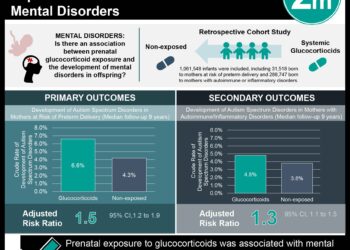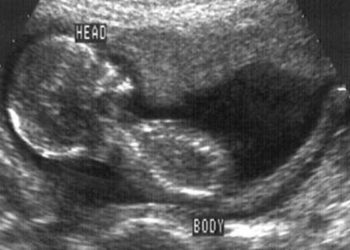Children born late preterm birth at higher odds to fail standardized tests
[tabs tab1=”2MM Rundown” tab2= “2MM Full Report”]
[tab]
Image: PD
1. Even children born late preterm experienced increased odds of failing 1st grade standardized tests.
2. Reducing rates of preterm birth may be an important goal to improve elementary school academic performance.
This study found that children born late pre-term were more likely to fail 1st grade standardized tests. This is one of the first studies to demonstrate that late prematurity imparts increased odds for lesser academic achievement, even when controlling for demographic and socioeconomic factors. While extreme and moderate prematurity are known risk factors for future academic failure, late prematurity has previously been thought to impart negligible risk compared with term deliveries.
Study findings are limited by 47% of births lost to follow-up; differential loss to follow-up may further limit results given that many of the lost births were from lower income, less educated families. Investigation of this association employing a prospective design, including the rationale for preterm delivery and evaluation of longer-term academic performance is merited.
Click to read the study in Pediatrics
[/tab]
[tab]
Image: PD
1. Even children born late preterm experienced increased odds of failing 1st grade standardized tests.
2. Reducing rates of preterm birth may be an important goal to improve elementary school academic performance.
This [retrospective cohort] study evaluated the association between gestational age at delivery and small for gestational age (<10th percentile birth weight for gestational age) and educational performance on first grade standardized tests in a cohort of Georgia children born between 1998-2003. Educational performance was assessed via three dichotomous outcomes: child passed or failed each of 3 first-grade standardized test components (math, reading, language arts). Race of children as well as maternal age, race and education were included in multivariate-adjusted models. Of the 628,115 eligible live births, 314,328 (53%) had first grade standardized test results available and could be included in the study.
Compared to children born at term (≥37 completed weeks gestation), those born late preterm (34-36 weeks) experienced greater odds of failure on math (OR:1.17, 95% CI:1.13-1.22), reading (OR:1.13, 95% CI 1.08-1.18), and language arts (OR:1.17, 95% CI: 1.07-1.29) standardized subject tests. Risk for failure was inversely associated to gestational age.
In sum: This study found that children born late pre-term were more likely to fail 1st grade standardized tests. This is one of the first studies to demonstrate that late prematurity imparts increased odds for lesser academic achievement even after controlling for demographic and socioeconomic factors. While extreme and moderate prematurity are demonstrated risk factors for future academic failure, late prematurity has been thought to impart only negligible risk compared with full term birth.
Study findings are limited by 47% of births lost to follow-up; differential loss to follow-up may further limit results given that many of the lost births were from lower income, less educated families. Investigation of this association employing a prospective design, including the rationale for preterm delivery and evaluation of longer-term academic performance is merited.
Click to read the study in Pediatrics
By Maren Shapiro and Leah Hawkins
More from this author: More U.S. women using emergency contraception pill, No cost contraception reduces unintended pregnancies, Active-Duty U.S. servicewomen have higher rates of unintended pregnancy
© 2013 2minutemedicine.com. All rights reserved. No works may be reproduced without written consent from 2minutemedicine.com. Disclaimer: We present factual information directly from peer reviewed medical journals. No post should be construed as medical advice and is not intended as such by the authors or by 2minutemedicine.com. PLEASE SEE A HEALTHCARE PROVIDER IN YOUR AREA IF YOU SEEK MEDICAL ADVICE OF ANY SORT. Content is produced in accordance with fair use copyrights solely and strictly for the purpose of teaching, news and criticism. No benefit, monetary or otherwise, is realized by any participants or the owner of this domain.
[/tab]
[/tabs]







